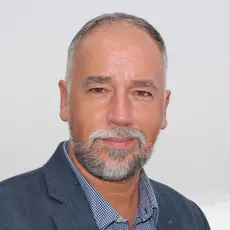Interview with Anders Kottorp

«I have rarely experienced such a well-integrated international program, at the same time being very consistent across the different modules regarding structure, guidelines and criteria.»
Anders Kottorp, principal lecturer of the Swiss module of the European Master of Science in Occupational Therapy
Five years ago the ZHAW Zurich University of Applied Sciences became a partner in the European Master of Science in Occupational Therapy program. You helped develop the Swiss module. What is special about this Master?
The unique aspects with this master can be summarized as follows:
It is truly an international European collaboration between five different universities. The students that comes from a variety of countries and occupational therapy settings will be exposed to occupational therapy higher education in several countries in Europe and learn from these contextual experiences as well in their studies. I have rarely experienced such a well-integrated international program, at the same time being very consistent across the different modules regarding structure, guidelines and criteria.
Secondly, the students in this program will experience a high level of research exposure, from assignments to the scientific thesis. Almost all of the faculty are involved in research projects on different levels, and have a lot of experiences from clinical and methodological standpoints. It is here important to acknowledge the ZHAW strategic development over the last years in Occupational Therapy, building a unique research-based unit with already a very strong track-record. It has been an honour and a privilege to be a part of this process!
What do the students experience in this module?
Within the module here in Winterthur they are exposed to quantitative research approaches and methods, primarily related to systematic evaluation and interventions in occupational therapy. They learn how to use specific tools for analysing quantitative data. They also perform a small scale quantitative project in their assignment. Another related focus in this module is the challenges of implementing an evidence-based practice approach.
As affiliated professor of the ZHAW Institut of Occupational Therapy, associate professor of the Karolinska Institutet in Sweden and Tenured Professor of the University of Chicago, Ilinois, you’re used to change perspectives. What do you like about it?
I actually think that most of these changes of perspectives has been driven by an eagerness to collaborate and learn from people I like and respect. So it is not a very career-driven motive behind all these changes.
ZHAW recruited me to an excellent group of faculty and researchers building up a unique unit related to research and higher education here in Switzerland.
Karolinska Institutet is a top-ranked medical university with unique opportunities and challenges in relation to health care research. I am here co-PI in a large research group with great collaborators and students.
UIC gives me a unique opportunity to further develop my research and educational skills in yet a very different context. I also hope to establish more international collaborations in my research and create win-win solutions for researchers to work across
All these perspectives create opportunities and challenges on different levels. I think for me it is always more interesting to find the similarities across different contexts and perspectives. OT in praxis and academia is truly an international platform that opens up for unique possibilities for collaboration and learning. I am just a lucky guy!